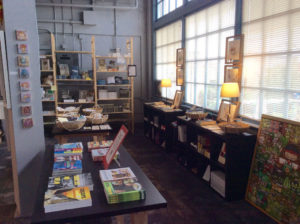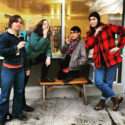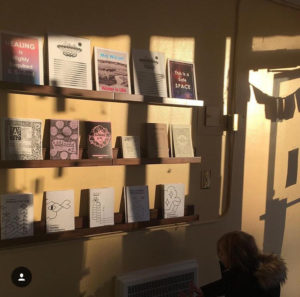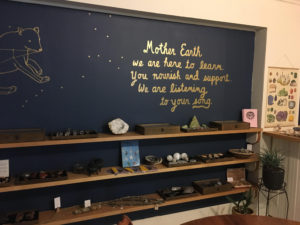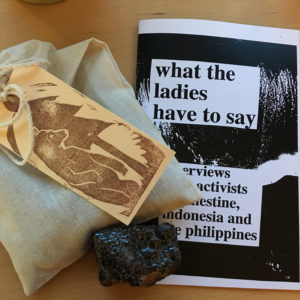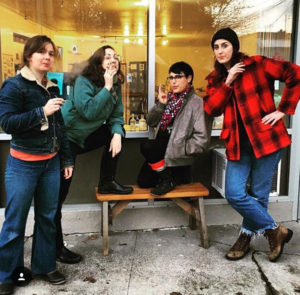Small Biz Spotlight on Chin Music Press
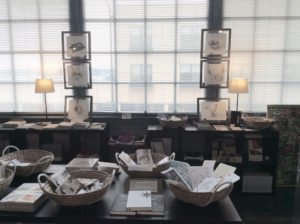
Yuko and I were living in Tokyo. I was working for a magazine and a TV station, and she had recently left a wire service reporting job. This was around the turn of the century. I came up with the crazy idea of starting a publishing house that focused on Japan partly because I wanted to get away from the grind of daily journalism and work in a longer form and partly because I saw the mainstream media paying less and less attention to Japan (this was in the early 2000s, as attention was shifting to China). I thought, “This is our chance!”
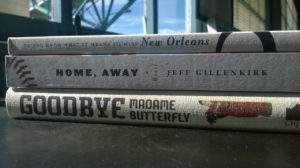 How do you continue to make beautiful books in an era when everyone else seems to be trying to pare away any extras?
How do you continue to make beautiful books in an era when everyone else seems to be trying to pare away any extras?Our first hire turned out to make a huge impact on the press. We hired Craig Mod, a young designer just out of college, and somehow finagled a visa for him to work in Japan. He was inspired by Japanese bookmaking aesthetics and principles, so from the start, our books had a different look and feel than other American books. We included sewn-in bookmarks, washi paper, we printed straight on the cloth covers (now common but not so much in 2004-5). Our first book, Kuhaku & Other Accounts from Japan, was beautiful, but it also was a financial disaster — except it got us a distribution deal with Consortium, which is very hard to do when you have just one book. That helped ease the financial pain. But what really turned matters around was our second book, a response to what was going on in New Orleans after Katrina. The US government response was so outrageously inadequate that we were compelled to put together an anthology, structured like a jazz funeral, called Do You Know What It Means to Miss New Orleans? It was a hit in New Orleans and is now in a third printing. The book was profitable, so I rather foolishly thought that I had gotten the hang of this publishing thing and went full-speed ahead. I had no idea how hard this business is.Your question about how we create these physical objects and still stay in business is a good one. We’ve scrape and claw to get by. We believed that as everything started going digital, people would begin to long for well-made things. A beautiful book would take on more meaning today than it did in 1980 or 1970. I think our assessment was right, but it also means our profit margins are slimmer. We needed to sell more books directly to readers than your average press to make up the difference. That’s one of the reasons we opened our store in Pike Place Market.Over the years, we’ve gotten a reputation for making beautiful books. That has led to some projects where we’ve helped businesses or individuals put out their own beautiful books. That has made the difference on the bottom line.
These things go in waves. We think we have this unique idea, but across the country other like-minded people are coming to the same conclusions. There was a wave of indie presses around 2004-2005 that came about largely because they could use the Internet to find readers. Us, Two Dollar Radio, Exterminating Angel Press and many others. Microcosm, Akashic and others took advantage of the early Internet in the mid 1990s. Now, I see a wave of publishers opening their own shops. Melville House, Milkweed, Curbside Splendor and others have all opened their own stores in the last few years. So we’re part of a wave. For us, it is about having a place to build community. I suspect that’s true of the others too.The bookstore is connected to our office. It makes for a healthy learning lab. Our staff can see what sells, how people interact with the books, who is attracted to what.As for lessons learned, I would say don’t rush into this. Retail is hard, Make sure you don’t over-leverage yourself where the store starts taking up all of your time. Keep your sales goals modest. Keep your eye on community, not on maximizing sales. That approach will bear fruit in the long run.
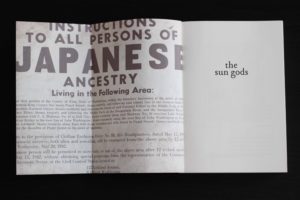
We are about to release Ghosts of Seattle Past, an ambitious anthology of lit, art, comix and photos that looks at what we’ve lost in Seattle to gentrification and other forces. The book will include seven hand-drawn maps. It’s a massive undertaking for us, and we can’t wait to unveil it on April 11 at Elliott Bay Books.We’re also very proud of our first children’s book, Are You an Echo? The Lost Poetry of Kaneko Misuzu. We’ve had to go back to the printer twice since September to meet demand. Who says poetry doesn’t sell?
We’ve just added a sample of Microcosm’s books to our collection. I love the aesthetic and the intention behind the books. In fact, I love being an indie publisher in this part of the world. From Wave and Copper Canyon poetry to Fantagraphics and Dark Horse to the amazing talent that comes out of the Ooligan program, like Overcup, and the sterling literary presses like Forest Avenue, indie-press culture in the PNW is flourishing.
We are about to sign a five-year lease for our shop in Pike Place Market, so I see our store still going strong, still building community, adding to the literary ecosystem in Seattle and the PNW. I don’t see e-books taking a larger slice of the pie — they’re a flawed product in many ways because we don’t own them or share them like books — but I do see digital marketing and data mining being more and more important. A decade from now, indie presses will still be the trendsetters, the ones taking the most risk. That’s our role, and I don’t see that changing.
